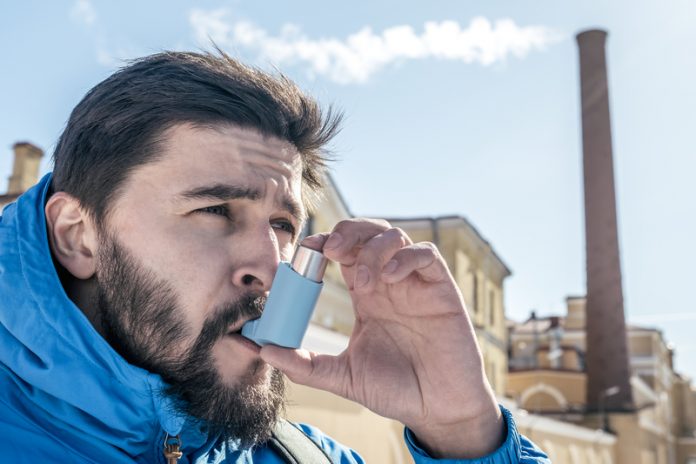Dr Samantha Walker, Director of Research and Policy details how inequality in the UK leads to poor asthma outcomes
An estimated 5.4 million adults and children in the UK live with asthma, a life-threatening respiratory condition, and three people die from an asthma attack every day. What is particularly concerning to us at Asthma UK is that the very place where people live appears to determine whether they get asthma, are hospitalised or even die from an asthma attack.
Asthma UK’s latest report On The Edge: How inequality affects people with asthma highlights how asthma outcomes are linked to deprivation. An individual living in North Manchester, which has the highest hospital admission rates in England and is the second most deprived area in the country, is four times more likely to be hospitalised for their condition compared to someone in Rushcliffe in Nottinghamshire which has lowest hospital admission rates and is one of the wealthiest areas in the country.
The findings are deeply concerning. Children living in deprived areas are also more likely to have poorer asthma outcomes. Exposure to second-hand smoke can worsen asthma symptoms and people on low incomes are more likely to smoke. Living in a more polluted area and breathing harmful toxins can also exacerbate asthma while mould, which is more likely in poor quality housing, can also be a trigger.
Many people are also not getting basic asthma care. Clinical guidelines suggest everyone with asthma should get basic care which includes getting a written asthma action plan, having their inhaler technique checked and having a yearly review with a GP or asthma nurse. But we know from Asthma UK’s research (1) that there is huge variation across the UK. Manchester has one of the highest rates of hospital admissions and poverty, yet 65% of people the North West of England do not receive basic care.
It cannot be right that people living with asthma are more likely to have worse outcomes because of where they live. This is why Asthma UK is calling on NHS healthcare commissioners and the government to tackle health inequalities. Receiving good basic care is essential in helping people to manage their asthma and could save the NHS money in the long run if it reduces people’s need to get hospital treatment. It is essential that primary care services are properly resourced so patients can get appointments to see their GP or asthma nurse, and that healthcare professionals feel equipped to provide their patients with basic asthma care.
The conditions of where and how people live also need to change. We wouldn’t ask someone to drink dirty water, so it cannot be right that we ask people to breathe dirty air. We are calling on the government to combat air pollution by introducing a Clean Air Act. Improving social housing to prevent people with asthma living in damp, mouldy homes is also essential to improve asthma outcomes.
One of the hurdles in ensuring that people with asthma stay well, especially those with low health literacy in deprived areas, is that many don’t understand how to manage their asthma which can be complicated in terms of different inhalers, different doses etc. For example, around 30-70% of people with asthma (2) don’t take their preventer medicine as prescribed – even though it is the most effective way of them staying well. This is because it builds up protection in someone’s airways over time, so if they come into contact with a trigger they’re less likely to have an asthma attack.
Technological innovations could offer a solution. For example, smart inhalers, which are not yet available on the NHS, use Bluetooth® technology to track how people use their inhalers in real time. This data could be shared with their GP or asthma nurse who would be able to detect any trends or assess how well they are managing their asthma – and adjust their care accordingly. Sharing data between primary and secondary care services can also lead to more holistic care. For example, if a patient presents at A&E due to an asthma attack, their GP can be easily notified so they can offer them the support they need to avoid having another asthma attack.
It is inexcusable that where someone lives could affect their asthma outcomes. By tackling insufficient basic care, pollution and housing and enabling technology to play a part in revolutionising healthcare, we can make this a thing of the past.
References
1 Asthma UK’s survey report Falling Through the Gaps: Why more people need asthma care surveyed more than 7,500 people https://www.asthma.org.uk/about/media/news/press-release-around800000-brits-with-asthma-getting-poor-care/
2 Rates of nonadherence amongst asthmatic patients have been shown to range between 30% and 70%. From Lindsay and Heaney: https://www.ncbi.nlm.nih.gov/pubmed/23723690
Dr Samantha Walker
Director of Research and Policy
Asthma UK
Tel: +44 (0)300 222 5800











